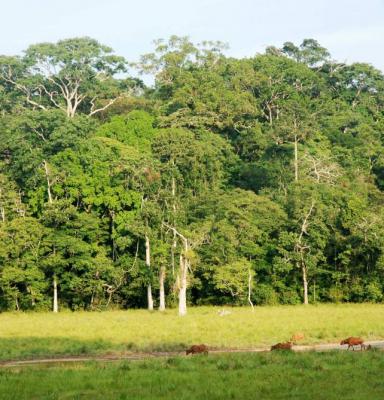
Environmentally appropriate forest management ensures that the harvest of timber and non-timber products maintains the forest's biodiversity, productivity, and ecological processes.
Socially beneficial forest management helps both local people and society at large to enjoy long term benefits and also provides strong incentives to local people to sustain the forest resources and adhere to long-term management plans.
Economically viable forest management means that forest operations are structured and managed so as to be sufficiently profitable, without generating financial profit at the expense of the forest resource, the ecosystem, or affected communities. The tension between the need to generate adequate financial returns and the principles of responsible forest operations can be reduced through efforts to market the full range of forest products and services for their best value.
The dawn of certification in Africa
Africa’s forests, which are estimated to span 637 million hectares, 20.6 per cent of the continent’s land area, and 15.6 per cent of the world’s forest cover, are a major force behind regional economic development. In Africa, there exists an astonishing 290 million hectares of production forest, with 10,7 million hectares managed under the Forest Stewardship Council® (FSC®) Forest Management (FM) certification.